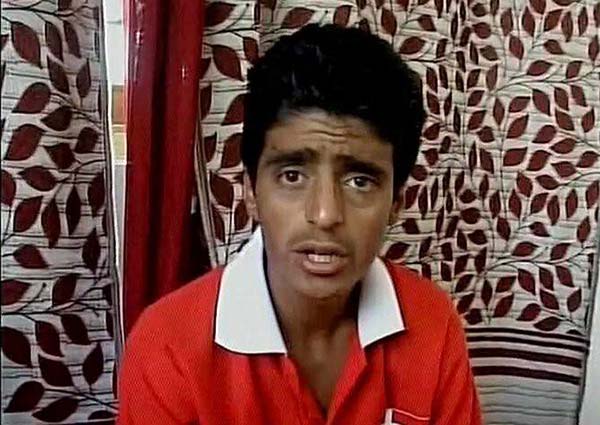by Masood Hussain

I remember that 2016 autumn afternoon, when Jalalauddin Baba, Kashmir’s emerging filmmaker, screened his Saving the Saviour in our newsroom. The impressive plot involving two orphans’ – the Wullar Lake and Bilal Dar, aka Billa, were so perfectly complementing the plot that I cried. As Billa talked about his tragedy, I left the room. It was too emotional for a reporter who has witnessed Kashmir tragedy for almost three decades now.
Wullar, the premier Ramsar site, lost its guardianship when the turmoil gave exploiters enough of room and a pat from the counter-insurgency grid to have a feild day. They land-filled it, created vast orchards and rice fields within it and set up mass plantations.
Then, there was Billa, living on the brim of the lake, whose father was devoured by cancer forcing him to drop out from the school and start picking up the threads of life with empty hands. He would almost steal the boats of his neighbours during wee hours, collect the plastic waste from the lake, and sell it to feed his family, his mother and sisters.
Almost a month later, when finally Billa could manage spending an hour in our newsroom, it was a different experience. The confidence in the boy and the eloquence with which he emphasised over every single word he spoke, were clearly indicating the rise of a role model. In January when we ran his story, it was so responded that people wanted to contribute in helping Billa to sustain life and the process he has initiated in the lake placid, a historic cushion against floods, reduced to function like the liver of Kashmir’s body.
The story was first mass introduction of Billa’s capacity to lead on a front conveniently ignored by a society, eaten by turmoil and beaten by the times. He would collect the empty water bottles, the rusted tin boxes, and many other things that Jhelum would drain into the lake from urban Kashmir that is desperately adopting Western style of life with unchanged primitive characteristics and archaic municipal setup. He showed how a bad urban life style and plagued governance processes can be a micro business opportunity.
https://www.facebook.com/KashmirLife/publishing_tools/?section=VIDEOS&sort[0]=created_time_descending#
Barring patches of peace and prosperity, Kashmir has survived with mass destitution for most of its history. Off late, the turmoil has hit it so hard that destitution is a crisis, much bigger than manufactured below poverty line population. Material requirements apart, this population is growing up with an emotional deficit, which could, one day, play with the larger society, quite adversely.
In this situation, there are Billas’ almost everywhere. These are individuals’ struggling for survival with respect and dignity. They run in thousands and their struggles are their own, off the camera and public domain. This is actually the new way of life that has been shaping up Kashmir for last many years now.
At least in one festival, the hosts wanted Billa to be around. But he could not make it. Destiny had something different inhis case. When the film was screened to a select audience of urban planers and municipal officials in a Srinagar hotel, Billa was in the audience. He could feel the appreciation for his role. The recognition came quickly. The Deputy Chief Minister Dr Nirmal Singh, instantly, announced that Billa would be the brand ambassador of the Srinagar Municipal Corporation. The order to that effect, however, came only last week. Now Billa would get monthly Rs 8000 from SMC. Abdul Haq Khan, the Rural Development Minister, followed up by announcing Billa would be entitled to Rs 1.5 lakh grant under some government scheme to reconstruct his flood-damaged home.s Billa’s hide and seek with the boat-owners continued, Babai’s film continuously created news in film festivals. It was screened at around dozen places within and outside India and was appreciated throughout. It bagged many awards pushing the filmmaker’s profile up the ladder.
Last week, came the recognition from the highest office in India when Prime Minister NarindraModi talked about him in his Mann Ki Baat. This leaves nothing much for Billa now.
Modi’s acknowledgement has pushed systems to take Billa seriously. Two days, after Mann Ki Baat, local administration visited his villages, talked to the people, to nderstand their problems are the way out. This is system’s old method of keeping the prominent on its side.

But the real priority for the government should have been talking to Billa and exploring the possibility of making his “occupation” a local movement. Jalal said there is already a group of 27 boys – nine of them orphans, almost sharing the struggle and surviving the story with Billa, who are so keen to follow Billa, on Sundays, for a start. They could be organised, mentored and enabled to help Wullar breathe easy.
Instead, of getting individuals like Billa move out of their homes and become part of the larger urban greed dominating the concrete jungles, it is vital to help him stay back and intervene at crucial spots, like Wullar. Let Billa be a role model and a motivator so that his “job” becomes a movement. Crucial interventions in climatic change era must be helped to sustain. Do not push him to a level where he would think in terms of heroism lacking any heroics. Solve his problems and get him sustain the problem-solution he has given Kashmir. Enable him to be Kashmir’s first Magsaysay winner, may be a decade later.














